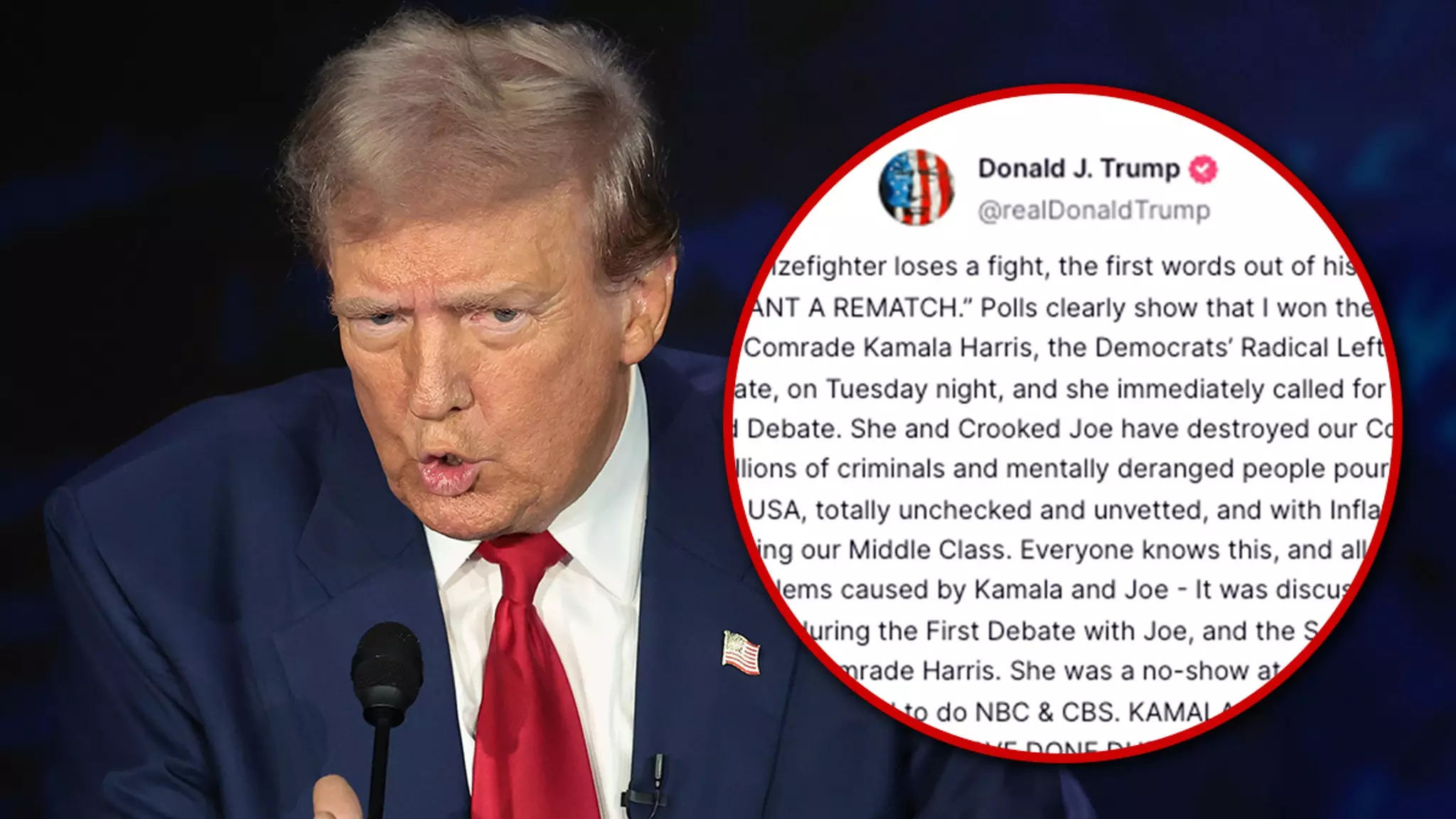In an unexpected move, former President Donald Trump has announced that he will not participate in a third debate against Democratic candidate Kamala Harris. This decision, communicated through Trump’s social media platform Truth Social, reveals as much about the current political climate as it does about the former President’s strategic thinking. By likening Harris to a challenger looking for a rematch after a decisive defeat, Trump conveys an underlying confidence—or perhaps bravado—that shapes his public persona.
Trump’s claims of having emerged victorious against Harris, whom he referred to as “Comrade Kamala,” reflect his characteristic approach to media and public relations, often fostering a narrative of dominance. He asserts that polls back his position, yet this raises questions about which polls are cited and the context in which they were conducted. Picking Harris as a political opponent seems to benefit Trump by allowing him to frame the narrative while sidelining President Biden, whom he previously debated in a significant contest. This tactic may serve to simplify a complex landscape for his supporters and reinforce his messaging to the American public.
In his social media commentary, Trump chastises Harris for avoiding debates on major networks like Fox News and NBC, redirecting the focus from a debate stage to real-life issues impacting Americans, such as immigration and inflation. This strategic pivot speaks volumes about his campaign priorities, as he aims to cast his opponents as failing to address practical concerns while he walks away from the limelight of further debate engagement. By framing the conversation around “real issues,” Trump appears to evade potential critiques of his own record while simultaneously positioning himself as the candidate ready to tackle pressing national matters.
Reflecting on the previous debates, Trump’s interactions have certainly made headlines. From unusual handshake moments to outlandish claims regarding immigrants, the debates were marked by a mixture of spectacle and serious political discourse. Such moments are where the line between performance and policy often blurs—a signature of Trump’s debating style. Despite polarized opinions regarding his performance during those debates, wisdom dictates that moments of controversy often garner attention and keep a politician relevant in public dialogue.
Amidst this charged atmosphere, Harris made headlines after receiving a notable endorsement from pop icon Taylor Swift. Such endorsements can sway public opinion and drive voter engagement, especially among younger demographics. Nevertheless, Trump seems undeterred, maintaining that his own focus on fundamental issues resonates far more with his base than celebrity endorsements.
While Trump’s refusal to engage in a third debate may initially appear to be a bold stance, it raises questions of whether it is a calculated retreat instead of an assertive move. It would be naïve to dismiss the complexities at play here. Trump’s approach allows him to maintain a commanding narrative while potentially avoiding the risks that accompany further debate exposure, especially with an opponent who may capitalize on any misstep. As we move closer to the election, the implications of this decision will unfold, possibly setting the stage for a larger political narrative heading into the future.

